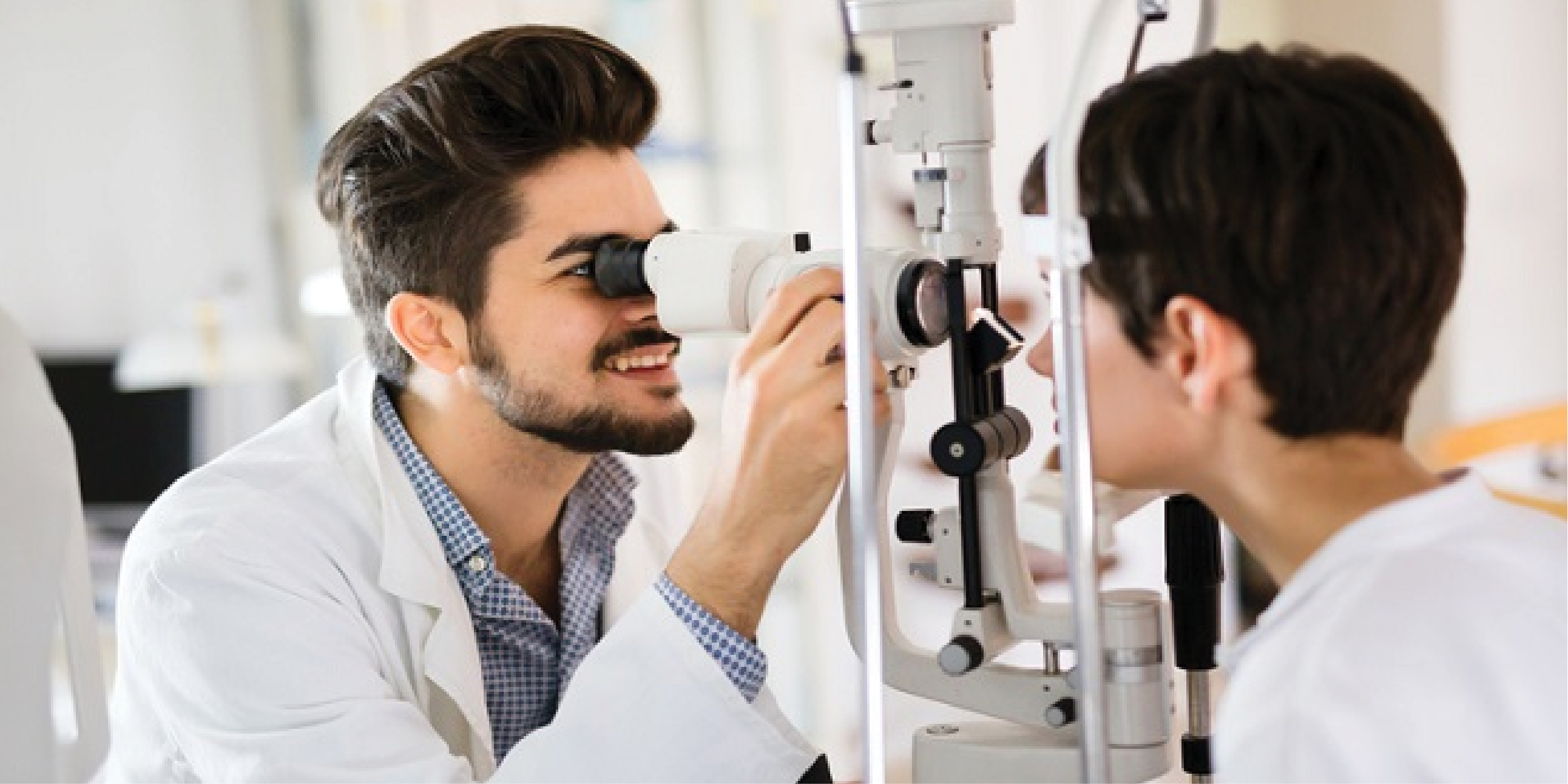
B. Optometry is a healthcare profession that involves the examination, diagnosis, and treatment of eye disorders and diseases. A Bachelor of Optometry (B.Optometry) degree program is an undergraduate program that prepares students to become optometrists.
The curriculum for a B.Optometry degree typically includes courses in anatomy, physiology, pharmacology, optics, and visual science. Students also learn about ocular disease, binocular vision, contact lenses, and low vision. They may also receive training in clinical procedures, such as refraction and diagnostic testing.
After completing a B.Optometry degree, graduates can pursue further education or training to become licensed optometrists. Optometrists can provide primary eye care services, including vision testing, prescription of corrective lenses, diagnosis and management of eye diseases, and pre- and post-operative care for patients undergoing eye surgery.
Optometrists can work in a variety of settings, including private practice, hospitals, clinics, and research institutions. They may also work alongside other healthcare professionals, such as ophthalmologists, opticians, and primary care physicians.
Overall, a B.Optometry degree provides students with the foundational knowledge and skills necessary to pursue a career in optometry and contribute to the health and wellbeing of individuals with visual impairments.
• Be able to develop skills to provide comprehensive eye examinations.
• Be able to correct refractive error and provide spectacle prescription.
• Be able to fit, evaluate, prescribe, and dispense contact lenses for refractive correction and other ocular conditions.
• Be able to assess the low vision and provide comprehensive low vision care.
• Be able to have adequate knowledge to develop skills in manufacturing of spectacle lenses, contact lenses and low-vision devices.
• Be able to do complete binocular vision assessment, manage non-strabismic binocular vision anomalies, and refer condition which warrants surgery.
Some common eligibility criteria are:
Selection procedure:
1. He/she has passed the higher secondary 10 + 2 or equivalent examination recognized by any Indian University or a dually constituted board with pass marks 45% in physics chemistry biology mathematics PCB or PCM
OR
Diploma in optometry after completing 12th class / 10 + 2 of CBSE or equivalent with minimum aggregate of 45% marks in physics chemistry and biology mathematics provided the candidate has passed in each subject separately.
2. Candidates who have passed the senior secondary school examination of National open school with the minimum of 5 subjects with any of the following group subjects.
(a.) English, Physics, chemistry, botany, zoology
(b.) English physics chemistry biology/mathematics and any other language.
3. He/she has completed the age of 17 years as on 31st December of the year of the admission.
4. He/she has to furnace at the time of submission of the application form a certificate of physical fitness from our registered medical practitioner and two references from persons other than relatives specifying to satisfactory general character.
5. Admission to a bachelor in optometric course shall be made on the basis of eligibility and an entrance test to be conducted for the purpose.
First Year:
Second Year:
Third Year:
Internship is for 12 months (1st August - 31st July) or 1 year. Total number of days (after deducting for national holidays & Sundays + Examination): 250 days (6 days/week; 6 hours/day)
= 1500 hours or a minimum of 18 weeks /semester (216 days)
Students are encouraged to involve in community outreach activities as part of their clinical postings without absenting himself/herself for the other regular classes. Project report (thesis) needs to be submitted at the end of the internship.
Optometry is a branch of healthcare that deals with the examination, diagnosis, and treatment of visual problems and other related disorders. As a professional, a Bachelor of Optometry (B.Optom) degree holder has several career options available to them, including:
Optometrist: An optometrist is a licensed eye care professional who performs eye exams, diagnoses and treats visual problems, and prescribes corrective lenses or other treatments to improve vision.
Ophthalmologist: An ophthalmologist is a medical doctor who specializes in eye and vision care. They diagnose and treat eye diseases, perform surgeries, and prescribe medications.
Vision Scientist: A vision scientist conducts research on visual systems and disorders to understand the underlying mechanisms of vision and develop new treatments for eye diseases.
Contact Lens Specialist: A contact lens specialist is an optometrist who specializes in fitting and prescribing contact lenses for patients with visual problems or other eye-related conditions.
Low Vision Specialist: A low vision specialist is an optometrist who specializes in helping patients with severe visual impairments or blindness to improve their quality of life by using visual aids or other forms of assistive technology.
Educator: As a B.Optom degree holder, you can also pursue a career in academia and become an educator, teaching optometry courses at the undergraduate or postgraduate level.
Researcher: You can also pursue a career in research by working in research labs, universities, or other research institutions to conduct studies on various aspects of optometry and vision science.
Overall, optometry is a rapidly growing field with a high demand for professionals with B.Optom degrees. With the increasing importance of eye health and the aging population, there are excellent career prospects for optometrists in the coming years.